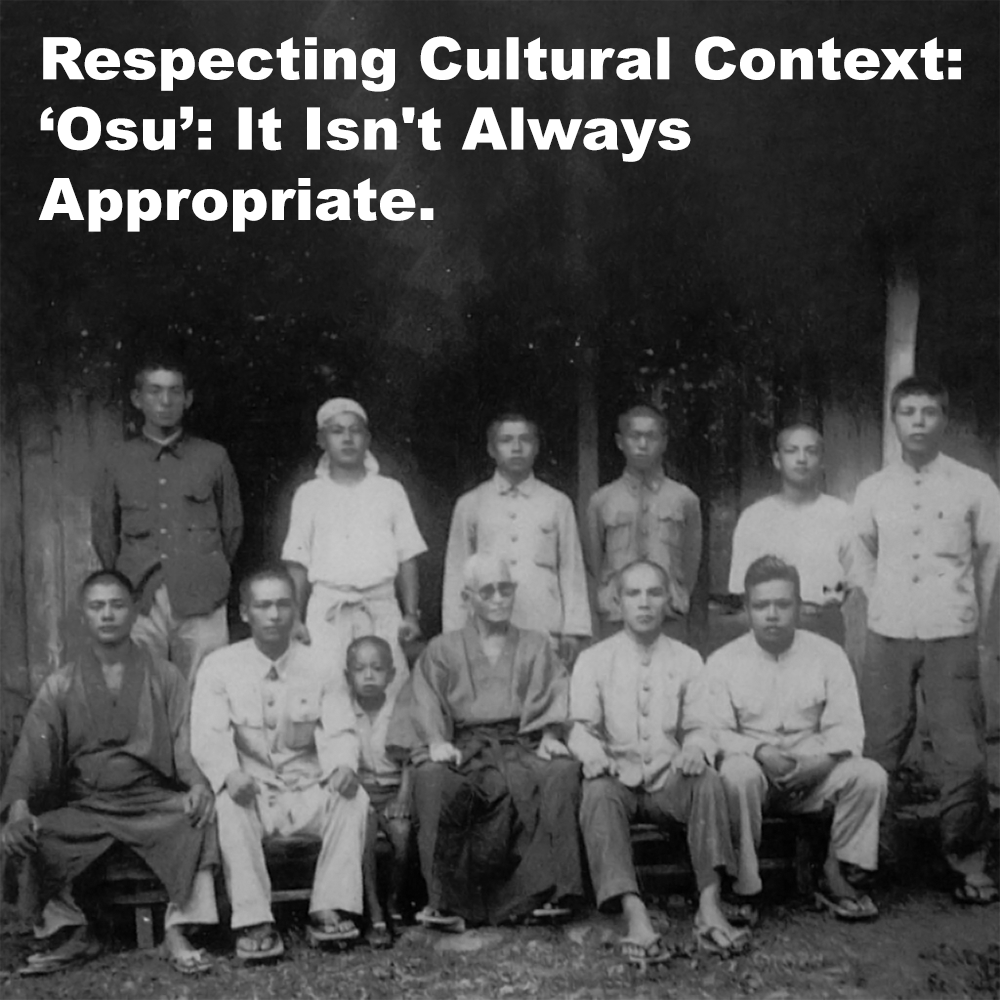
(Approx 2 minute 10 second read)
Let’s start the New Year by addressing (again) something that so many people seem to get wrong, especially on social media.
.
The increasing use of the word ‘Osu’ (or ‘Oss’, or a million other incarnations) has become strangely common. It’s often used as a catch-all greeting or acknowledgment. However, this broad usage overlooks important cultural and historical nuances.
.
Many people misunderstand it and use it as a universal Japanese greeting, but its origins tell a more specific story. The term is not rooted in Okinawan culture – the birthplace of many traditional karate systems – but rather in mainland Japan. It originated in military and sports contexts.
.
In Okinawa, however, the term is often considered militaristic, reflecting the influence of Japan’s early 20th-century militarization.
.
To many Okinawans, the term can carry connotations of dominance and rigid hierarchy that feel out of step with their values and traditions. While they may not openly express discomfort (out of politeness), using the term in an Okinawan dojo or when addressing an Okinawan instructor can be seen as disrespectful.
.
Respecting the culture from where the art originated is a vital part of understanding the deeper principles of the martial arts we all practice isn’t it?
.
In my experience, communication – especially on social media or in personal messages – can sometimes become ambiguous. I often receive private messages or comments that contain nothing but ‘Osu’ in the body of the message. I’ve even seen people use it when referring to videos of Chinese and other martial arts.
.
What does it mean? Is it a greeting? A comment? A question? Without additional context, it’s difficult to discern the intent behind the message. It’s lazy, without making a comment that actually conveys a point of view or contributes meaningfully to the conversation.
.
If you have a question or comment about my articles or just a general inquiry, write it out clearly. It’s much easier to respond meaningfully when the intent is clear.
.
Kyokushin, some Shotokan, and other styles use it extensively, and if your dojo uses it, that’s fine – it’s part of your training. However, it’s important to recognize that it’s not a magical word that fits every situation.
.
Outside of your dojo, its use can sound casual and with a very masculine tone, which may not be respectful in certain situations. Its history with militaristic contexts can sometimes make it feel out of place or unintentionally exclusive.
.
It’s worth noting that traditional Japanese etiquette places great emphasis on politeness and appropriate language based on the context and audience. In mixed or formal groups, using more inclusive and respectful greetings better reflects the spirit of mutual respect that the martial arts should embody.
.
The martial arts are not just about techniques; they’re about respect, understanding, and learning – both personal and cultural. As practitioners, we have a responsibility to learn and honor the traditions behind the words and practices we adopt.
.
So, don’t make yourself look like a twat (which, let’s be honest, not everyone understands either). Think of the term like emojis – maybe fun for you to use, but not everyone speaks the same language.
.
.
Written by Adam Carter – Shuri Dojo
.
.
Photo Credit: Students with Chotoku Kyan
